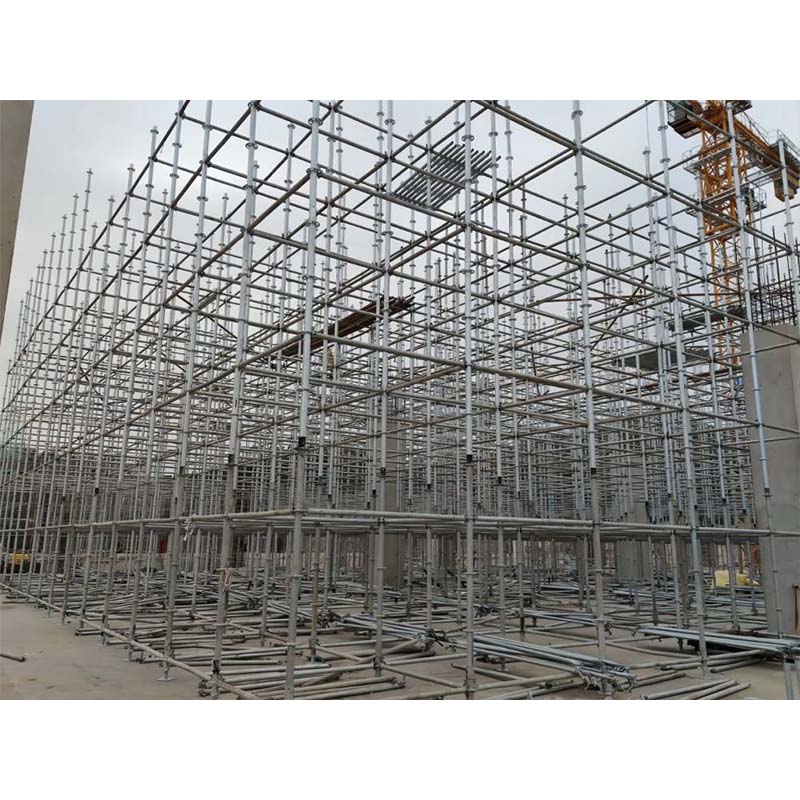Oct . 12, 2024 08:27 Back to list
slab formwork system manufacturer
Understanding Slab Formwork Systems A Comprehensive Guide
In the realm of construction, efficiency and safety are paramount. One of the critical components that influences the overall effectiveness of a building project is the formwork system used. Among various types of formwork, slab formwork systems stand out due to their versatility, ease of use, and efficiency in constructing flat surfaces. This article delves into what slab formwork systems are, their types, advantages, and considerations when choosing a slab formwork system manufacturer.
What is Slab Formwork?
Slab formwork is a temporary structure used to support the weight of concrete until it hardens and gains sufficient strength to support itself. These systems are crucial for constructing floors, ceilings, and roof slabs in various building types, from residential to commercial structures. Properly designed slab formwork ensures that the concrete retains its shape, prevents deformation, and allows for accurate dimensions.
Types of Slab Formwork Systems
1. Traditional Timber Formwork This is the most common formwork system, often made of plywood and timber. While it is cost-effective and highly customizable, it may require significant labor and time for assembly and disassembly.
2. Metal Formwork Constructed from aluminum or steel, metal formwork is durable and reusable. It offers tighter tolerances and requires less labor than traditional timber systems.
3. Modular Formwork This type provides a pre-engineered solution that can be easily assembled and disassembled. Modular systems are particularly beneficial for projects with repetitive designs.
4. Flying Formwork Ideal for high-rise buildings, this system allows formwork to be moved or flown from one level to the next without disassembly, significantly speeding up the construction process.
Advantages of Using Slab Formwork Systems
slab formwork system manufacturer

Choosing the right slab formwork system can have a dramatic impact on construction efficiency. Some benefits include
- Speed Modern slab formwork systems are designed for quick assembly and disassembly, reducing overall project timelines. - Cost-Effectiveness By minimizing labor and material wastage, advanced formwork systems can lead to substantial cost savings. - Quality and Precision Advanced systems ensure a high-quality finish with minimal defects, which is crucial for structural integrity. - Worker Safety Many modern formwork systems include safety features that help protect workers on-site.
Considerations When Choosing a Manufacturer
When selecting a slab formwork system manufacturer, several factors should be taken into account
1. Quality Standards Look for manufacturers that adhere to international quality standards and certifications. This ensures that the formwork systems are durable and safe.
2. Product Range A manufacturer that offers a variety of slab formwork systems can provide solutions tailored to different project requirements.
3. Technological Innovations Consider manufacturers that invest in research and development, as they are likely to offer more advanced and efficient products.
4. Customer Support and Training A reliable manufacturer should provide excellent customer service and training for proper assembly and usage of their systems.
5. Reputation and Experience Opt for manufacturers with a proven track record in the industry; client testimonials can provide insights into their reliability and product performance.
In conclusion, slab formwork systems are essential in modern construction, offering efficiency, safety, and precision. When selecting a manufacturer, it’s crucial to consider their quality standards, product range, technological capabilities, customer support, and reputation. By choosing the right slab formwork system and manufacturer, construction professionals can ensure a successful and streamlined building process.
-
Durable Powder Coating Steel Formwork Enhanced Lifespan & Protection
NewsJun.03,2025
-
Industrial High Load Scaffolding Suppliers Safe Heavy-Duty Solutions
NewsJun.03,2025
-
Prop 30-350 Premium Table Forms for Exporters & Suppliers
NewsJun.03,2025
-
Custom Falsework Systems for Construction Durable & Adjustable Solutions
NewsJun.03,2025
-
China Scaffolding Jacks - Durable & Adjustable Construction Solutions
NewsJun.03,2025
-
Euro Scaffolding Suppliers Durable & Custom Solutions
NewsJun.02,2025